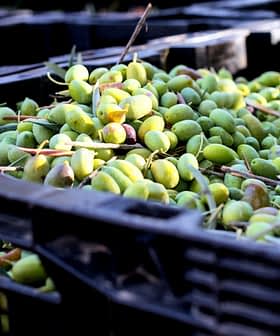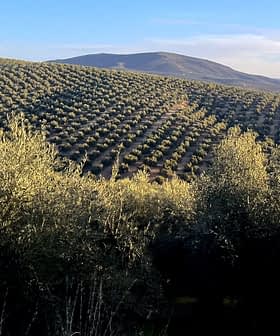Turkey Lifts Ban on Bulk Olive Oil Exports Ahead of Schedule
The Turkish Ministry of Commerce has lifted the bulk olive oil export ban earlier than expected, which had initially been imposed due to concerns about price speculation and domestic market shortages. The decision was met with support from the National Olive and Olive Oil Council, while other exporters criticized the government for poor communication and management of the situation.
The Turkish Ministry of Commerce has again permitted bulk olive oil exports after banning them in March.
The Turkish government initially decided to prohibit bulk exports over concerns about price speculation and shortages in the domestic market. The decision was further fueled by the uncertainty created by the Covid-19 pandemic.
The news… that this ban was lifted before the anticipated date was welcomed by all parties, especially with the expectation of a better crop yield.
Initially scheduled to last until the end of October, the export ban had caused great controversy in the sector.
Turkish producers were unsure of the reasons that led the government to impose the prohibition. At the same time, the Aegean Olive Oil Exporters Association (EZZIB) had criticized the restriction claiming that there was no shortage of olive oil and the bulk export ban would harm the country’s olive oil producers and exporters.
See Also:Trade NewsThe dismissal of the ban sooner than expected was welcomed by Turkey’s National Olive and Olive Oil Council (UZZK).
“This decision [to ban exports] was negatively received by the sector representatives under the umbrella of our national olive and olive oil council,” Mustafa Tan, the chairman of the board of the UZZK, said.
“The news at the general assembly of the National Olive and Olive Oil Council, which took place on July 29, 2021, that this ban was lifted before the anticipated date, was welcomed by all parties, especially with the expectation of a better crop yield,” he added. “We would like to express our gratitude to the relevant ministries on behalf of our board of directors.”
However, other exporters were supportive of the restriction, which they said protected farmers from price speculators, but criticized the government for poorly communicating their purpose.
“Contrary to other sector representatives who were outraged at that time, we explained that considering the lack of yield, there was no decrease in prices and there would be no harm for the farmers,” said Alper Alhat, the chairperson of the Akhisar Commodity Exchange in Manisa province. “We [hoped to prevent] panic and disrupt the efforts of those who tried to snatch farmers’ products for low prices.”
“Unfortunately, the Ministry of Commerce did not manage this process well,” he added. “It did not inform the public properly. Many commercial grievances and some unjust gains have arisen because the ministry tried to impose the ban on the exporter’s association without clearly determining and publishing it in the Official Gazette.”
According to the Aegean Olive and Olive Oil Exporters Association, Turkey’s exports of olive oil (both packaged and in bulk) amounted to 20,000 tons in the first seven months of the 2020/21 crop year (from November 2020 to May 2021), down from 31,000 tons in the same period last year.









